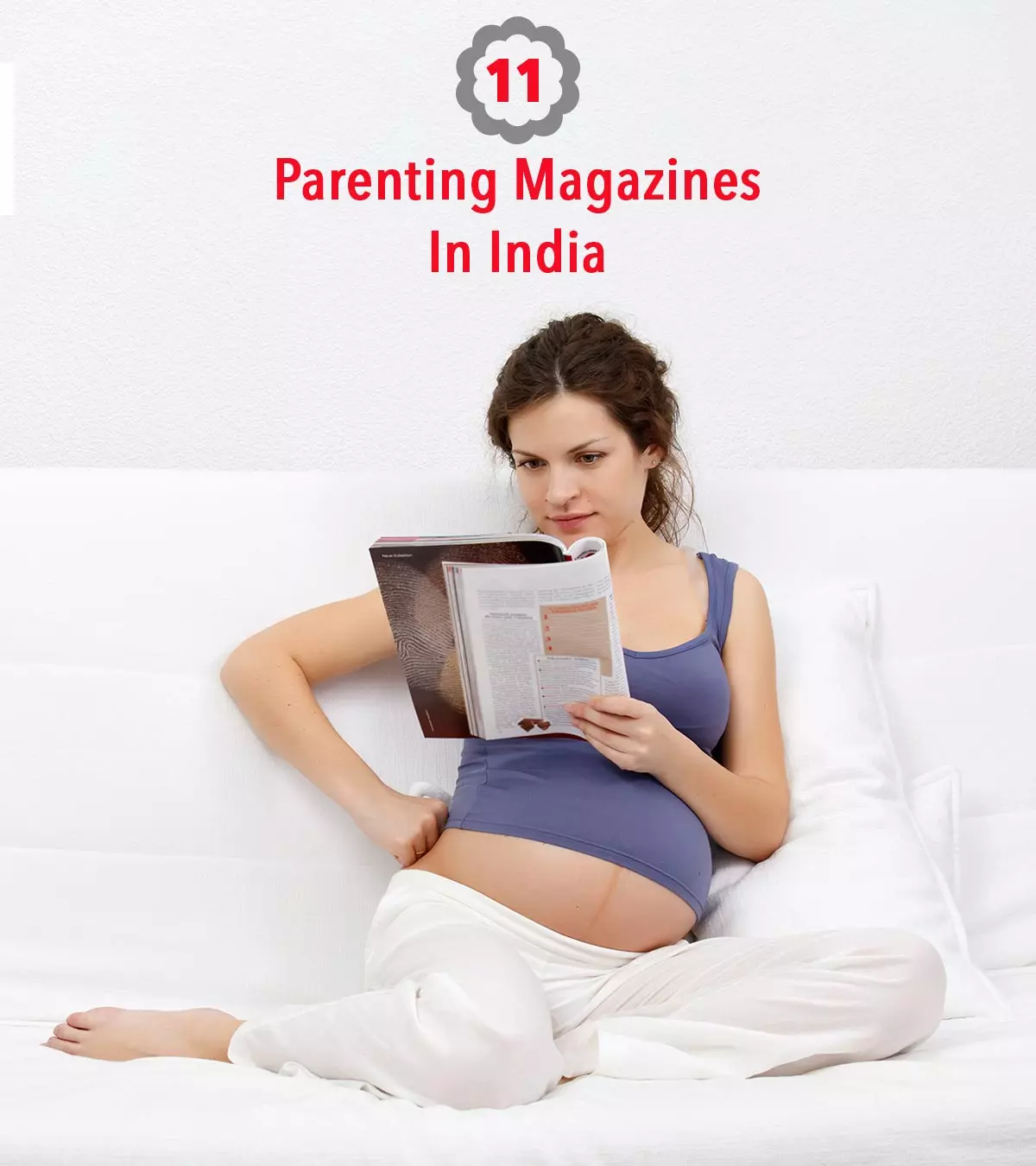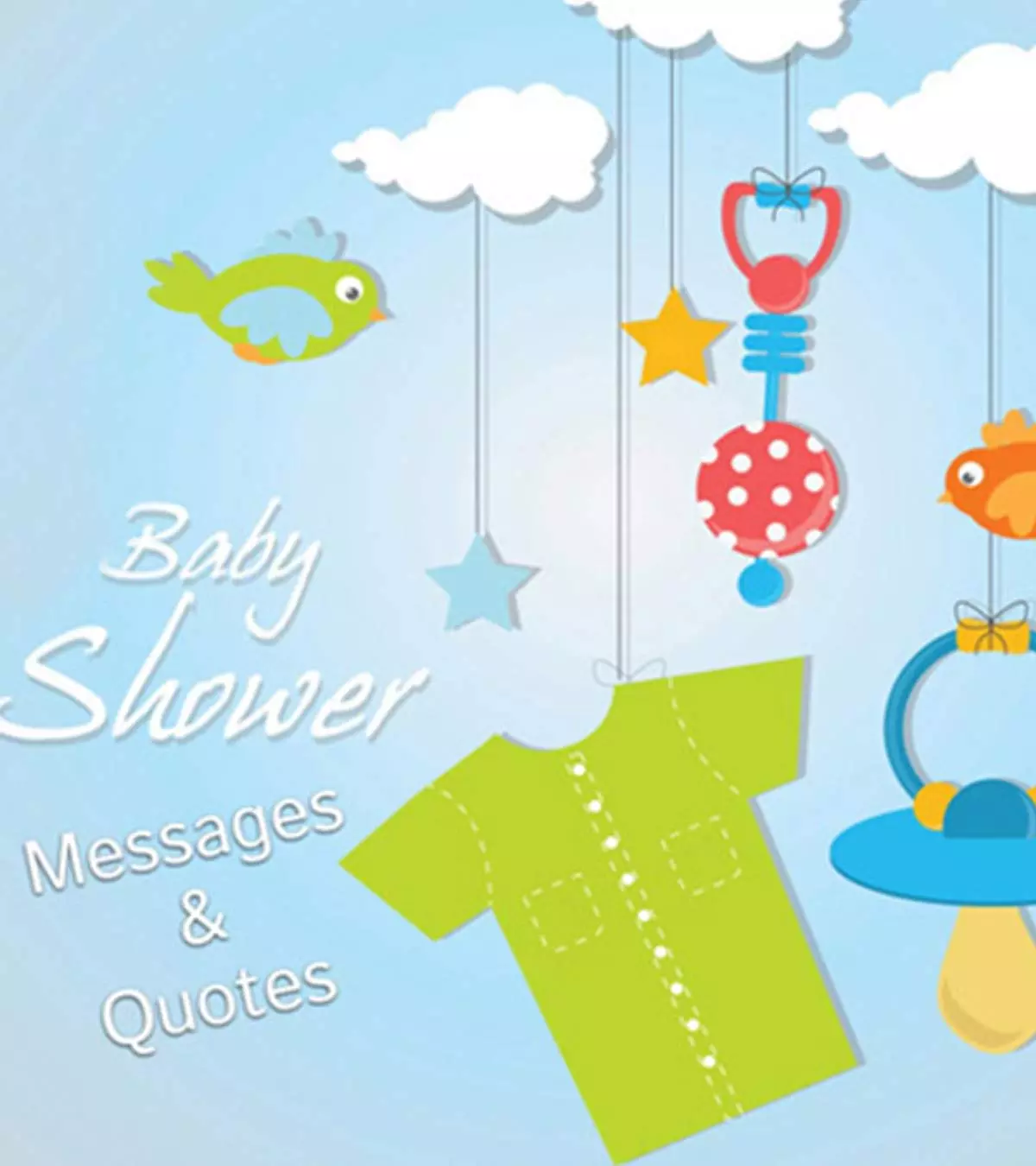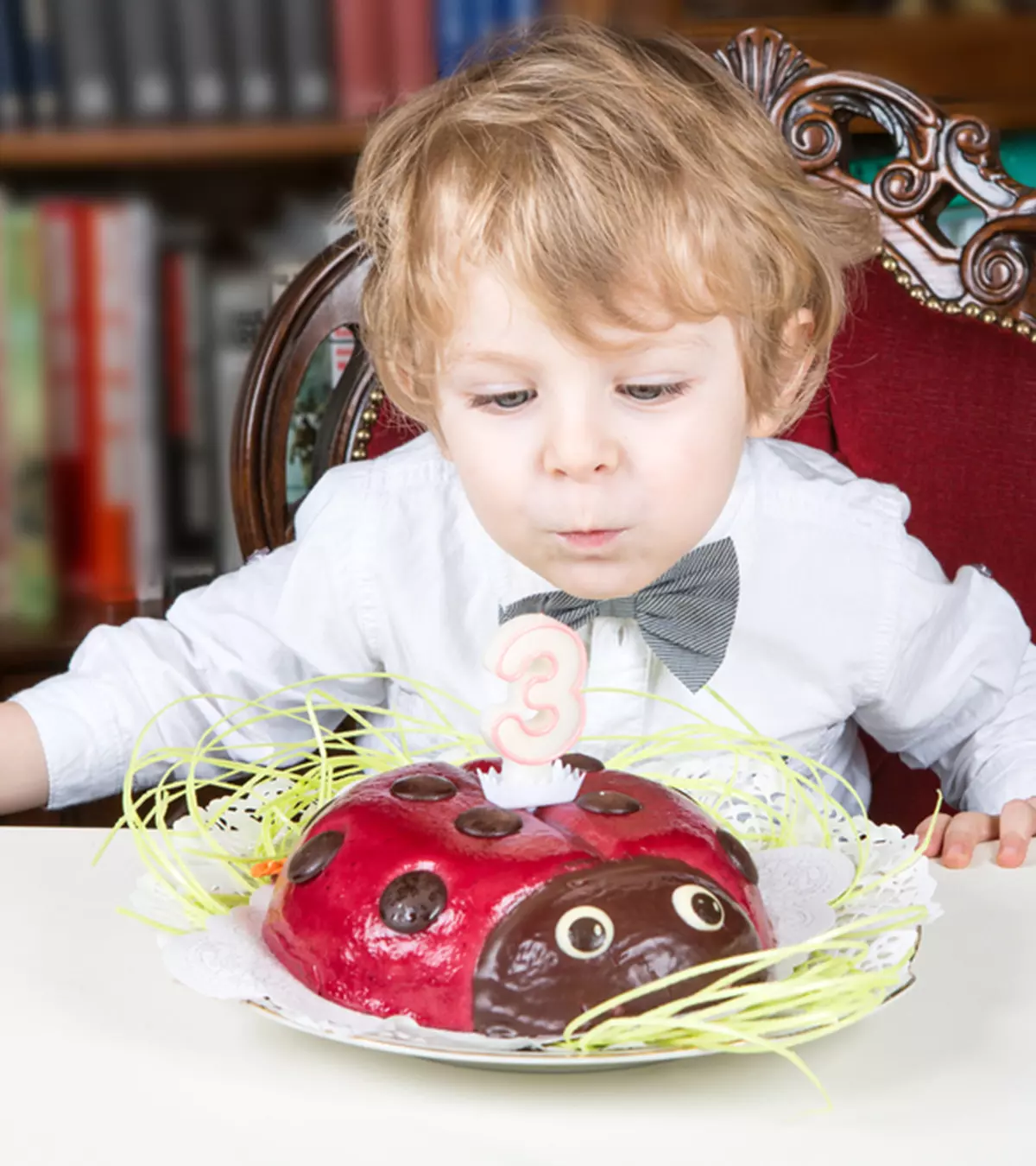
Image: Shutterstock
Strict parenting often does more harm than good. Sometimes many parents may not realize they are strict, so knowing the signs that you are a strict parent can help you change your parental strategies. As a tough parent, when you make every decision for your child, they obey all the rules willingly or by force. And, being easy with them can turn them into disobedient children as they are not used to following anything you say. But is traditionalist strict parenting still the right way to do it?

Kids turn rebellious after a certain age which may cause multiple issues in the parent-child relationship. So how can a parent deal with kids the right way by ensuring that certain norms and values are being followed? This post will help you answer these questions. Read on to learn more.
Key Pointers
- In strict parenting, children follow every decision made for them, whether willingly or not, which can lead to rebellion and strained relationships.
- Signs include imposing rigid rules, having children who lie or leave parties early, and only coming to you with their needs when you’re in a good mood.
- While strict parenting may benefit children academically and in terms of self-control and confidence, it can also have negative consequences.
- Children of strict parents may have low self-esteem, lack independent thinking skills, avoid experimentation, be mentally stressed, and hide their emotions.
What Are The Different Styles Of Parenting?
Broadly, there are four types of parenting styles (1):
- Authoritarian: In authoritarian parenting, communication is one-way, where the child must obey the parents’ strict rules. The rules are neither explained nor do the children have room for negotiations. Children are expected to uphold these standards, and mistakes are punishable.
- Authoritative: It includes developing a nurturing relationship with the children. There are clear guidelines and explanations associated with their expectations. Children have good communication and may put forward their inputs in the rules. Disciplinary measures and not punishments are used.
- Permissive: Parents have minimum expectations in permissive parenting style. They allow children to figure out their lives in a warm, nurturing environment.
- Uninvolved: The parents usually do not participate but provide for the children’s basic needs. They are given a lot of freedom.
What Is Strict Parenting?

Strict parenting involves rigid enforcement of rules and restrictions on a child’s behavior, choices, activities, and even their everyday routine.
It is characterized by high expectations and severity of punishments as a consequence of failing the set standards and rules. Parents tend to be unsympathetic to the concerns of their children in the fear that it might result in failure.
However, the word ‘strict’ is subjective as there is no formal manual to follow for parenting. Parents following the same style as you do will not consider you to be strict. But other parents may.
What Are The Signs You Are A Strict Parent?
You may not always be aware that you are being too strict in the name of obedience and protecting your child. So, look out for these signs of a strict parent:
- Your child is the first one to leave a party and come back home. You set a time for your children/teens to come back home from a party, and it is so early that they are the first ones to leave every party.
- You do not allow your child/teen to have a sleepover or hang out at night. Going out with friends is never encouraged, and staying back at a friend’s place cannot even be thought of.
- You agree to your young one’s demands only when you are in a pleasant mood. Your children consider you unapproachable. Rather, they are afraid and wait for you to be in a good mood before asking anything.
- It’s always one time. You will allow your teen to go out only once a month but not on all the weekends.
- Your son or daughter lies to you. When kids and teens are extremely afraid about their parents’ reactions and the consequences of doing something unpleasant, they resort to lying.

- You never had ‘the talk’ with your teenager. For some strict parents, it is too personal to talk about puberty and you can’t imagine being friendly and open with your teen. So, you leave it for them to figure it out by being unemotional which can lead to potential misunderstandings or emotional distancing.
- Only formal conversations. During family dinners, you only discuss their grades and school, and never about their social life.
- You still choose for your teen. You do not allow your teen to wear anything of their choice. And if they do, you give not-so-nice remarks.
- You won’t take anything ‘unacceptable’. You cannot imagine your son or daughter getting their hair dyed or wearing ‘revealing’ clothes. Such actions will have strict consequences.
- Your kids are uncomfortable with you. Whenever you are around, your children are not comfortable expressing their ideas, laughing aloud or talking to their friends as you are perceived as judgemental.

- You do not laugh with your kids. You never crack jokes in front of your children and vice versa.
- One mistake becomes too big. If your teen misses one call from you, you assume the worst. And sometimes, you even take the phone away.
- Your punishments are severe and unrelenting. For missing out on one rule, you will not talk to your child, or withdraw affection for a long time.
- You do not take feedback. Whatever you say, your child is expected to follow the order. There is no chance to discuss and exchange thoughts about it due to your inflexibility.
 Point to consider
Point to consider- Fun is missing at home. You hardly do fun things and have happy moments with your children, just because you have to maintain your sternness.
- Fun for your child is somewhere away from home. Your child thinks of spending free time out of the home, either outdoors or at some friend’s house. And that they do by lying to you.
- Your teen/ child is aloof and withdrawing from you. Your child is perhaps withdrawing because of your overbearing rigidity.
A few of the above signs do not make you a strict parent because they are followed by not-so-strict parents as well. It is the rigidity and the manner of authority that makes a difference. Let’s see the other differences.
How Is Strict Parenting And Normal Parenting Different?
The following are the differences between strict parents and normal parents:
| Strict parenting | Normal parenting |
|---|---|
| For strict parents, there are rules for every aspect of their child’s life and they are irreplaceable. | Normal parents do set rules and consequences but they are not rigid. |
| Strict parents punish children for minor mistakes. In this way, they try to show their concern and care for the child. | They do not believe in punishing children but make them realize their mistakes in a constructive manner. |
| They rarely say “yes” to their young ones’ requests. These kids often stop asking for things after a time, knowing that their parents will not agree anyway. | Normal parents believe in giving an affirmative response to a child’s request if it is reasonable. But they do consider if saying yes would do any harm to the child. |
| Strict parents set rules with regards to academic and school performance. They expect children to do well in studies and other activities. Failure is not taken easily. | They understand the importance of academics and education. Although they set rules for learning, they also understand the child’s capabilities and do not reprimand them for their failures. |
| They obsess over curfew hours and do not let their children be away from home for long. | Normal parents give their child the freedom to go out with their friends and have fun. But they make it clear to the children that they can’t misuse the freedom. |
Although being strict with your child is not always advisable, it has some benefits too.
What Are The Advantages Of Strict Parenting?
While seriousness, micromanagement, and strict parenting may impair psychological development in the child, healthy emotional support, along with home rules, can benefit the children later in their life. Here are some of the advantages of strict traditional parenting:
- Academic performance: Strict parents push their children to work hard, be good at academics, and get a good job. They set up high standards for their kids, and they are raised and trained to always aim high.

- Self-control: Strict parents make their children follow specific limits and boundaries. This way, children learn to have better control over themselves. They are less likely to fall to peer pressure.
- Self-confidence: When the parents are constantly pushing their kids to improve and work harder, children learn to deal with tough situations. This could result in success and confidence.
Sasa, a blogger, remarks how she is thankful to her parents for being strict, “My parents loved me and gave me the best they could no matter how strict they were and I’ll always be grateful for that (i).”
Remember that these advantages of regimented parenting come at a cost.
What Are The Negative Effects Of Strict Parenting?
Let us now take a look at the adverse effects of strict parenting:
- Low self-esteem: Strict parents do not value their children’s opinion. They are snubbed for voicing their critical ideas or concerns. This makes the children doubtful about their decisions and could result in poor self-esteem.

- Cannot think independently: Children/teens raised by strict parents are so used to taking advice and instructions that they lack independent thinking. They never get to listen to their instincts to make a decision.
Jennifer, a blogger, narrates how her unhealthy relationship with her parents affected her ability to make decisions. She says, “I guess my parents are particularly strict, especially my mum who loves giving orders and expects obedience. Honestly, I don’t like the way she treats me. It makes me feel as though I’m unable to make decisions on my own, and even though I do make decisions, they are frequently rejected without a reasonable explanation (ii).”
- Passive by nature: With the parents always controlling their lives, children become passive towards their own life. They refuse to take control of their life even after they grow up.
- Never experiment: When kids have a fear of failure or committing mistakes, they play safe. They would normally refrain from trying something new.
- Mentally rigid: The rigidity and unyielding nature of strict parents rubs on their children as they get used to such an atmosphere at home. They tend to see the world only in black and white and may fail to see it in all its shades and accept different sorts of people.
- Stressed: The children feel stressed out as they always have to be cautious in front of their parents as they try to be a perfectionist. They need to be conscious of what they are speaking, doing and thinking.
- Hide emotions: Over time, children raised by strict parents learn to hide their feelings and emotions, as they understand that expressing feelings is not acceptable. Furthermore, they might become distant and emotionally detached.
 Do remember
Do rememberFrequently Asked Questions
1. What type of parents are strict?
The most strict parents are authoritarian and authoritative. They are demanding, have high expectations, and solid disciplinary beliefs.
2. What do strict parents do?
Strict parents attempt to control all aspects of their children’s lives, including academics, hobbies, and likes and dislikes. However, firmness can be positive and negative if misused. Strict and responsive parenting delivers the best results in children in the case of authoritative parenting. In contrast, strict and unresponsive parenting yields adverse outcomes, such as behavior and mental health problems, low self-esteem, and other issues in the case of no-nonsense parenting.
3. Can strict parents cause OCD?
According to research, strict parenting alone may not be the sole cause of children developing OCD, but stressful life events during adolescence coupled with several other factors could lead to OCD in children (2).
4. How can I balance being a strict parent with being supportive and loving my child?
As a parent, you can set clear expectations and boundaries for your child but also leave scope for open communication. This ensures they are disciplined but can also come to you for support. Encourage your child to make independent decisions and provide guidance instead of strict control. When they seem confused or make mistakes, show empathy and validate their emotions. Offer constructive criticism and praise for their good work.
5. Are there any cultural or societal factors that contribute to parents becoming more strict?
Traditional cultural values, societal norms, and expectations are some factors that could be the cause behind parents’ emphasis on obedience, discipline, and academic achievement. Economic instability, safety concerns, or cultural changes can also prompt parents to be more strict with their children to protect them and keep them within boundaries. Personal experiences and upbringing also play a huge part in parenting styles.
6. How can I seek support or guidance as a parent struggling with being too strict?
You can talk to other parents and friends about the parenting issues you are struggling with, and they may share their personal experiences, which may help you in some way. You can also join a parenting support group to learn from other parents and modify your parenting style. Seeking advice from a professional counselor can also help you make changes to your parenting style.
7. Can strict parenting lead to a strained relationship between parent and child?
Strict parenting often means excessive control and constant criticism, which can lead to resentment and rebellion in the child. Strict parents can unintentionally create a wall between them and their children, which hinders open communication and bonding, leading to undeveloped or strained relationships with their children.
8. Are strict parents more likely to have obedient children?
Children of strict parents may exhibit obedience out of fear of punishment. But it does not mean that they will always be obedient. As the child grows older, they may resent their strict parents and become rebellious. Parents must try to strike a balance between discipline and affection.
Knowing the signs of being a strict parent can help you be aware of parenting strategies since many parents may not know whether they are strict or not. Although being strict is good, it has some pros and cons. Most parents keep stringent rules and structure to discipline their children organized and succeed with the right parenting strategies. You may incorporate the same tactics without being too strict or lenient. Focus more on developing good communication and bonding with your children so they can approach you to share problems or seek help at any time without hesitation. Also, do remember to understand the emotional needs of your children as the old-fashioned approach of harshness in strict parenting may lead to negative effects on a child’s psychological and emotional growth.
Infographic: Find Out If You Are A Strict Parent
Holding high standards and uncompromising and dominating nature are classic features of strict parenting. Although it was a norm in the olden days, it is known to do more good than harm to a child when parents go overboard with it. Therefore, review the indications mentioned in the below infographic to learn if you are a harsh or strict parent to your children.
Some thing wrong with infographic shortcode. please verify shortcode syntax
Illustration: Signs That You Are A Strict Parent

Image: Stable Diffusion/MomJunction Design Team
Do you find your parents too strict? Or is it normal for everyone else? Watch the video to find out signs of stringent parents.
Personal Experience: Source
MomJunction articles include first-hand experiences to provide you with better insights through real-life narratives. Here are the sources of personal accounts referenced in this article.
i. Growing Up With A Strict Dad.https://sasaquina.blogspot.com/2017/04/growing-up-with-strict-dad.html
ii. Growing Up With Strict Parents.
https://medium.com/bouncin-and-behavin-blogs/growing-up-with-strict-parents-43cfc1c4b6b3
References
- Terrence Sanvictores and Magda D. Mendez; (2025); Types of Parenting Styles and Effects On Children.
https://www.ncbi.nlm.nih.gov/books/NBK568743/ - Lack of parental warmth, abuse in childhood linked to multiple health risks in adulthood
https://newsroom.ucla.edu/releases/lack-of-parental-warmth-abuse-248580 - Are punitive parenting and stressful life events environmental risk factors for obsessive-compulsive symptoms in youth? A longitudinal twin study
https://www.ncbi.nlm.nih.gov/pmc/articles/PMC6386579/
Community Experiences
Join the conversation and become a part of our nurturing community! Share your stories, experiences, and insights to connect with fellow parents.
Read full bio of Dr. Carlos Juan Carmona-Goyena
Read full bio of Kalpana M
Read full bio of Rebecca Malachi
Read full bio of Apoorva K
















